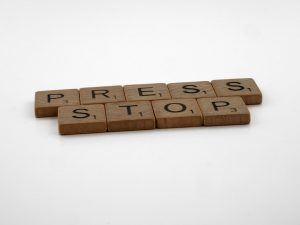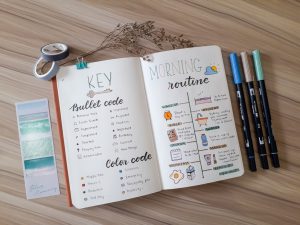8 Tips to Boost Emotional Wellness in Tough Times
Boost your emotional wellness with these 8 essential tips for resilience during tough times. Discover ways to thrive today.
Prioritize Self-Care Activities
Understand the Importance of Self-Care
Self-care is not a luxury but a necessity, especially during tough times. It involves taking deliberate actions to care for your physical, mental, and emotional health.
Prioritizing self-care activities can help reduce stress, improve mood, and increase resilience. When you make self-care a priority, you are better equipped to handle the challenges life throws your way.
Identify Activities That Nourish You
To effectively prioritize self-care, identify activities that truly nourish and rejuvenate you.
These can vary greatly from person to person. For some, it might be engaging in physical exercise like yoga or jogging, while for others, it might be reading a book, meditating, or spending time in nature.
Reflect on what activities make you feel refreshed and incorporate them into your routine.
Schedule Regular Self-Care Time
Once you have identified your preferred self-care activities, it is crucial to schedule them regularly. Treat your self-care time as an important appointment that cannot be missed.
Whether it’s a daily meditation session, a weekly spa day, or a monthly retreat, having a set schedule ensures that you consistently make time for yourself amidst life’s demands.
Set Boundaries to Protect Your Self-Care Time
In order to prioritize self-care, it is essential to set boundaries with others. Communicate your needs and let those around you know when you are unavailable due to self-care commitments.
This might mean saying no to certain requests or delegating tasks. Protecting your self-care time is vital for maintaining your emotional wellness.
Be Mindful and Present
During self-care activities, practice mindfulness by being fully present in the moment.
This means focusing on the sensations, thoughts, and emotions you experience during the activity. Mindfulness enhances the benefits of self-care by helping you connect with yourself on a deeper level and fostering a sense of peace and clarity.
Practice Mindfulness Daily
Understanding Mindfulness
Mindfulness is the practice of being present and fully engaged with the current moment without judgment.
It involves paying attention to your thoughts, feelings, and sensations in a way that promotes clarity and acceptance. By integrating mindfulness into your daily routine, you can enhance your emotional resilience and improve your overall well-being.
Benefits of Mindfulness
Practicing mindfulness daily can help reduce stress, anxiety, and depression.
It encourages a greater awareness of your emotions and reactions, allowing you to respond to challenges with a calm and balanced mindset. Additionally, mindfulness can improve focus and concentration, making it easier to navigate difficult situations.
Simple Mindfulness Techniques
Incorporating mindfulness into your day doesn’t require extensive time or effort.
Start with simple techniques such as mindful breathing, where you focus on each breath as it enters and leaves your body. Another effective method is body scanning, which involves paying attention to different parts of your body, releasing tension, and promoting relaxation.
Mindfulness in Daily Activities
Mindfulness can be practiced during everyday activities.
Whether you’re eating, walking, or even washing dishes, try to engage fully in the experience. Notice the sensations, smells, and sounds around you.
This practice helps anchor you in the present moment, reducing the tendency to dwell on past regrets or future worries.
Building a Mindfulness Routine
To make mindfulness a habit, set aside a few minutes each day for practice. Choose a time that works best for you, whether it’s in the morning to set a positive tone for the day or in the evening to unwind.
Consistency is key, so start small and gradually increase the duration as you become more comfortable with the practice.
Mindfulness Resources
There are numerous resources available to support your mindfulness journey. Consider using guided meditation apps, attending mindfulness workshops, or reading books on the subject.
These resources can provide valuable insights and techniques to deepen your practice and enhance your emotional wellness.
Seek Support from Loved Ones
Understanding the Importance of Support
When life becomes challenging, the emotional support of loved ones can be a vital resource. Having a strong support system can help you navigate through tough times, providing comfort and perspective.
Emotional wellness is significantly enhanced when you feel connected to others who care about your well-being.
Communicating Your Needs
It’s essential to communicate openly with your loved ones about what you’re going through. Let them know how they can help, whether it’s by listening, offering advice, or simply spending time with you.
Clear communication ensures that your needs are understood and met, fostering a stronger bond and more effective support.
Building a Support Network
Building a robust support network involves nurturing relationships with family, friends, and even colleagues. Reach out to those who have been there for you in the past and consider expanding your circle to include new connections.
A diverse support network can provide various perspectives and resources, enriching your emotional resilience.
Reciprocating Support
While seeking support is crucial, it’s equally important to offer support in return. Being there for your loved ones not only strengthens your relationships but also enhances your own emotional wellness.
The act of giving support can be empowering and fulfilling, creating a reciprocal relationship that benefits everyone involved.
Recognizing When to Seek Professional Help
While loved ones can provide significant support, there are times when professional help may be necessary. Recognizing when to seek therapy or counseling is an important step in maintaining emotional wellness.
Loved ones can assist in this process by encouraging you to seek professional guidance when needed, ensuring you have access to all available resources for recovery.
Engage in Physical Exercise Regularly
Boosts Mood and Reduces Stress
Regular physical exercise is a powerful tool for enhancing emotional wellness. Engaging in activities like walking, jogging, or yoga can trigger the release of endorphins, which are natural mood lifters.
These endorphins help reduce stress levels, making it easier to cope with challenging situations. Exercise also lowers the production of stress hormones such as cortisol, contributing to a more balanced emotional state.
Enhances Self-Esteem and Confidence
Participating in regular physical activity can significantly improve self-esteem and confidence.
Achieving fitness goals, whether big or small, provides a sense of accomplishment. This boost in self-esteem can translate into other areas of life, fostering a more positive self-image and greater resilience when facing adversity.
Additionally, exercise can improve physical appearance, which often enhances overall confidence.
Improves Sleep Quality
Quality sleep is crucial for emotional wellness, and regular exercise plays a vital role in improving sleep patterns. Physical activity helps regulate the body’s internal clock, promoting more consistent sleep cycles.
Better sleep can lead to improved mood, increased energy levels, and sharper cognitive function, all of which are essential for handling tough times with a clear and focused mind.
Provides a Healthy Distraction
When dealing with emotional challenges, exercise can serve as a healthy distraction. Engaging in physical activities allows individuals to take a break from their worries and focus on the present moment.
This mental shift can provide a much-needed respite from stressors, allowing for a temporary escape and a chance to recharge emotionally.
Fosters Social Connections
Exercising regularly can also foster social connections, which are vital for emotional support. Joining a gym, participating in group fitness classes, or engaging in team sports provides opportunities to meet new people and build supportive relationships.
These social interactions can offer encouragement and motivation, making it easier to maintain a regular exercise routine and improve emotional resilience.
FAQ
Q1: How quickly can I expect to see results after implementing these emotional wellness tips?
A1: The timing of results can vary significantly from person to person, depending on individual circumstances and the specific challenges they are facing. Some people may start to notice improvements in their emotional well-being within a few weeks, while for others, it might take a bit longer. Consistency is key; regularly practicing these wellness tips can gradually build resilience and emotional strength over time. It’s important to be patient with yourself and recognize that emotional healing is a journey rather than a quick fix.
Q2: Are these emotional wellness tips suitable for everyone, regardless of their situation?
A2: While the 8 emotional wellness tips are designed to be broadly applicable, individual experiences and needs can vary. These tips are generally beneficial for anyone looking to enhance their emotional resilience, but it’s crucial to tailor them to your personal situation. If you’re dealing with specific mental health issues, it might be helpful to consult with a mental health professional to ensure that these strategies complement any existing treatments or therapies you may be undergoing.
Q3: What if I find it difficult to implement these tips consistently in my daily routine?
A3: It’s common to face challenges when trying to incorporate new habits into your routine, especially during tough times. Start by selecting one or two tips that resonate most with you and focus on integrating them into your daily life. Gradually add more as you become comfortable. It’s also helpful to set realistic goals and remind yourself that progress, not perfection, is the aim. If you find it difficult to stay consistent, consider seeking support from friends, family, or a support group to help keep you accountable and motivated.
Takeaway
“Take the first step towards a healthier lifestyle today by incorporating a small new habit into your routine. Share this article with your friends to inspire them to join you on this journey. For more evidence-based information and resources, explore the WHO website or other trusted sources. Your health and well-being are worth investing in – let’s make positive changes together!” As outlined in Reuters’ recent publication,











Comments